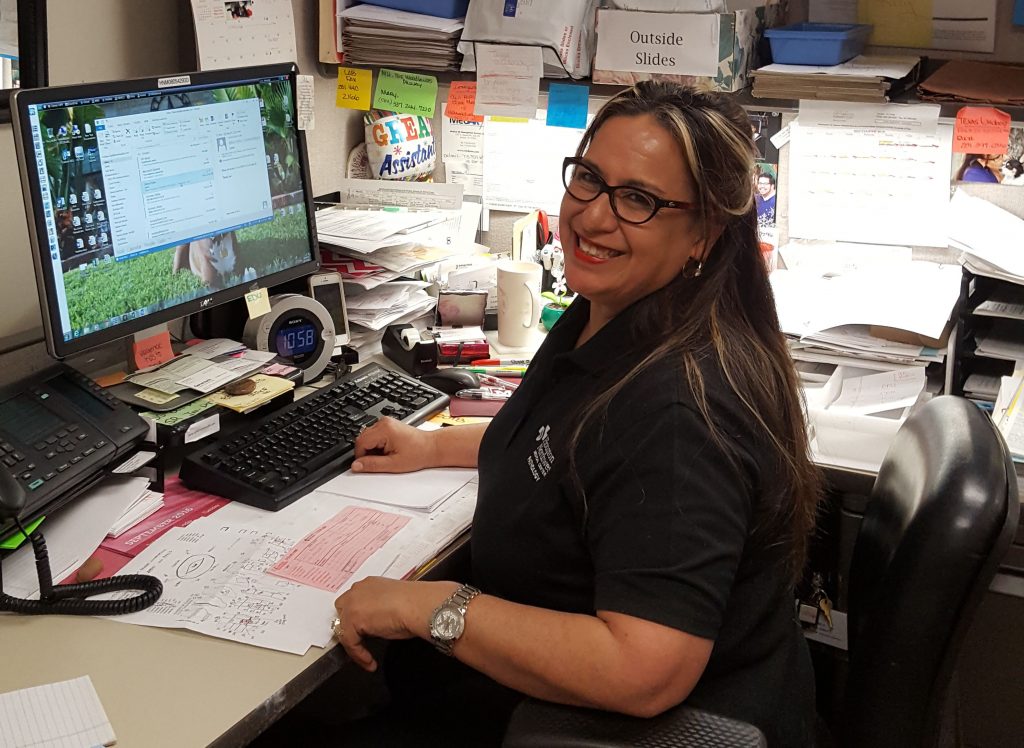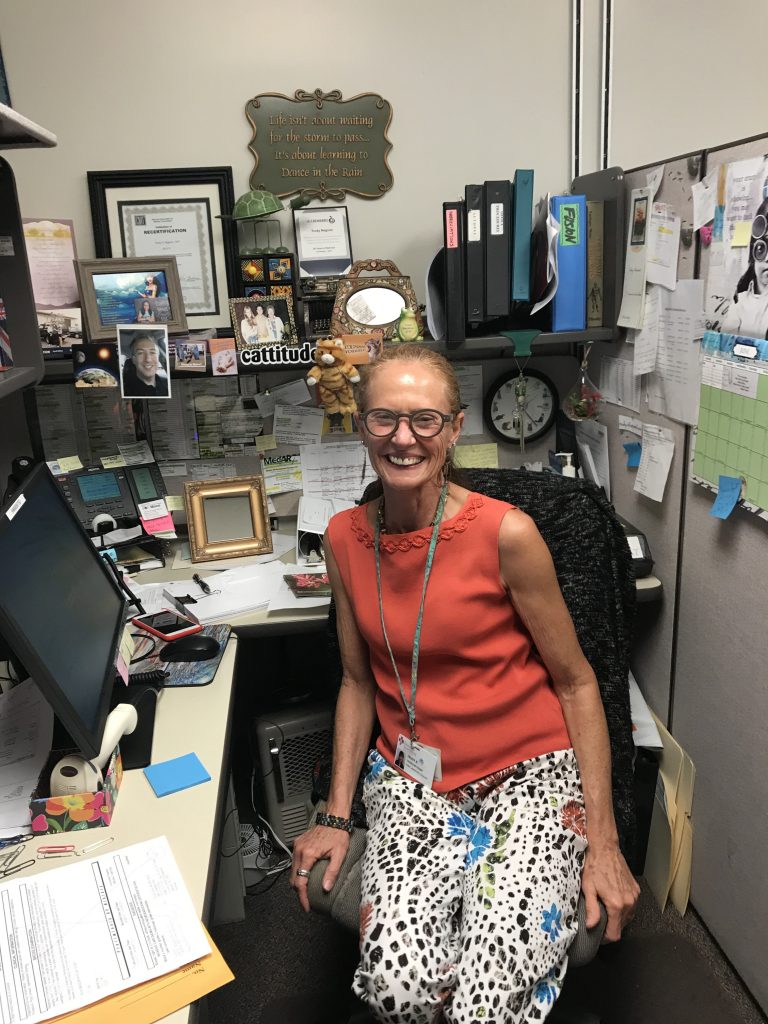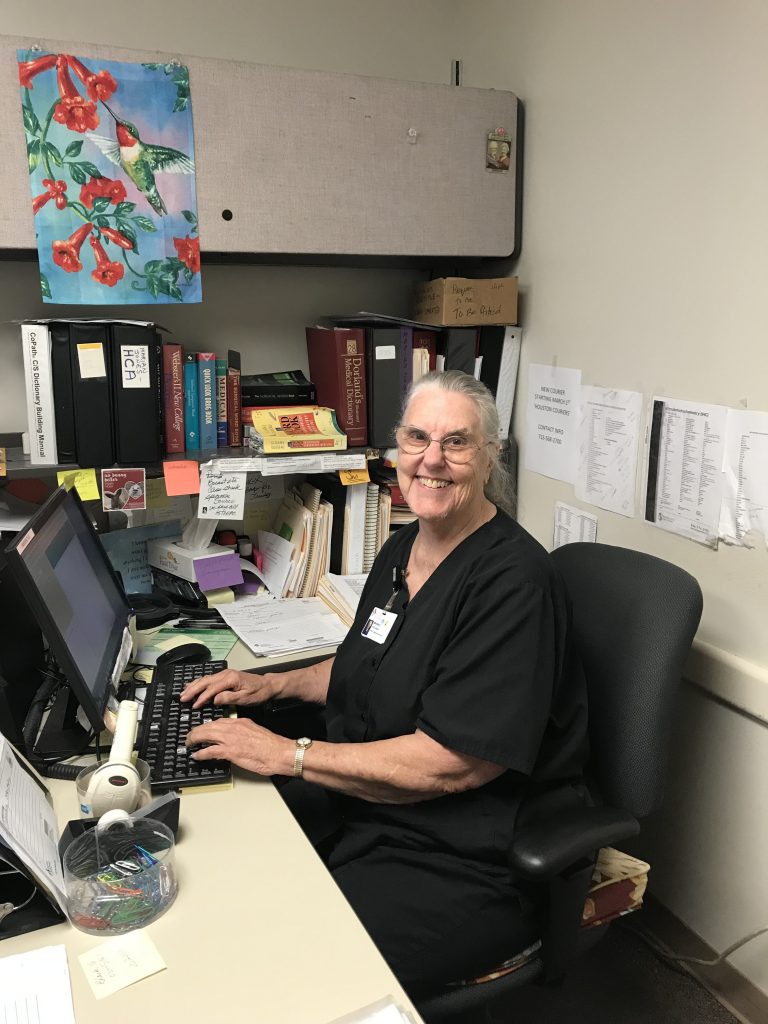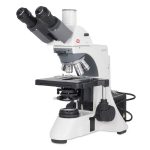Who has the best ears in the hospital?
This question came to me recently as I thought about the transcriptionists in our office. And the question doesn’t have anything to do with a beauty contest or other Miss America type judgements. It asks who has the best hearing, as a group, in the hospital? And there is a depth to the question, because there is more to transcription than hearing a tone.
If you have ever been to an audiologist, you know you are put in a soundproof booth, tight earphones are placed over your ears, and you are asked to recognize a variety of tones, often at very low intensity. But all you have to do is acknowledge you have heard the tone.
Not so with transcriptionists. And they are not listening in a soundproof booth. Instead our transcriptionists are in a room with phones ringing, people meandering in and out, and deliveries coming in the front door. Yes, our transcriptionists are in the front office. What a great place to listen to transcribed dictation by, in our case, pathologists and pathology assistants (PAs). And everyone is speaking English, or so each person thinks.
Let me paint you a picture of the front office. There is an administrative assistant and 2-3 transcriptionists. Everyone has a phone. The administrative assistant triages everything that comes in the door including containers with tissue in formalin, FedEx deliveries and pickups, and many phone calls. As the phone calls multiply at any given moment, the transcriptionists begin to answer the additional calls. Clinicians rush in looking for signed out reports, and someone must stop typing to find the report. Guess who often does that? Yep, it’s the transcriptionists. And besides all of this, someone has to help the pathologists get ready for weekly conferences, with retrieval of pathology reports and histology slides.
But we are getting away from the actual transcription. When there is time between being hostesses for the pathology department, that is when transcription begins. In the past, each pathologist had a dictation station on his/her desk. The “medium” has changed over the years. In the early days it was a blue circular tape. Later cassettes of different sizes were in vogue. Now we use digital dictation that shows up on the transcriptionists’ computer. The near future holds the promise of voice recognition systems and maybe no transcriptionists—a bad possibility. (More on that later).


Sometimes the transcriptionists need to have a huddle in the front office. They consult each other, sometimes a passing pathologist, to come huddle around their office table and listen to the poor pronunciation of one transcription. The problem word or short phrase is garbled and doesn’t make sense in the sentence. Rather than bother the offending pathologist, the ladies in the front office play the word or phrase over and over again until someone divines the intended word/phrase. This reflects a real commitment to our mission in pathology, of accurate reporting in a timely fashion.
The real hearing test begins when the transcriptionist sits down to transcribe. She is typing pathology reports and there is a total of 6 pathologists in our group. Remember, everyone is speaking English. But not everyone is speaking the same kind of English. Now the hearing test begins. Once a folder of dictation is selected, the transcriptionist knows whether the next hour of dictation is going to be smooth or rocky. You see, pathologists are special people and each have their special way of dictating. Some are speaking English as a second language and accents are involved. Others are very particular about the punctuation and intersperse the dictation with commas and other things to make the grammar perfect. There are still others, especially the oldsters in the group, who have trouble keeping track of what they were dictating. This often leads to confusing dictation and a lot of extra work for the transcriptionists. Because of the above, transcriptionists often find themselves acting like mind readers and magicians, in an effort to make sense out of the physicians’ dictation.

Not only do the transcriptionists hammer out reports as dictated by all of the pathologists, they also have to listen to the context of the report and make sure nonsense is not included. Most of us cannot count how many times one of the ladies has come into our offices to question if a sentence or paragraph makes sense. Their attention to detail saves the day and the report many times. Every transcriptionists understands how important the pathology reports are for patient care and knows personally that a well-done report reflects well on the department. In the end, a well-done pathology report is extremely important in exemplary patient care.
As I look back on more than forty years of pathology dictation, I have a great deal of respect and admiration for the ladies who typed my reports and those of my colleagues. Part of the reason for this essay on transcriptionists is to genuinely thank them for caring about the patients we serve. The truth is pathologists can type but not transcribe as well or fast as our transcriptionists. In our case, these ladies gladly take care of all pathology office business, leaving us somewhat secluded in our offices to concentrate on studying our cases, mostly free of interruptions. But that doesn’t mean there aren’t interruptions—the transcriptionists are taking care of that besides doing the transcription!
Based on my 44 years of total pathology experience, I cannot imagine the front office without transcriptionists. Who is going to handle all of the incoming phone calls, deliveries, and clinicians who wander in and want reports now? Who is going to make sure the reports have the required components in place and that the report makes sense when it is complete? Who is going to be committed to the quality of the report? Who is going to be thinking about the patient who belongs to the typed report? The fully implemented voice recognition system cannot do any of the above. And that is why I will always vote for having the human element in the front office of the pathology lab, as exemplified by loyal, trustworthy and committed transcriptionists. Amen
Epilogue
A lot of physicians think hospital administrators need hearing aids……
but that has not been my experience.




I have always felt that you truly were the only one who appreciated our value as transcriptionists. Both Marian and I knew the gravity of our responsibility to safeguard your business from possible liability from all fronts, especially since we were well aware that we as your transcriptionists shared in that liability…. this is the most amazing tribute to a thankless profession. We will for evermore be proud of the important role we fulfilled with our whole hearts,